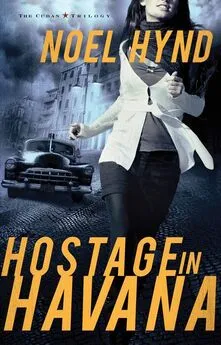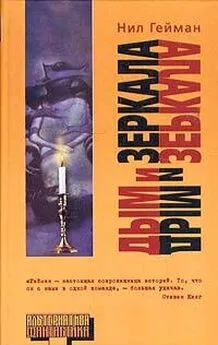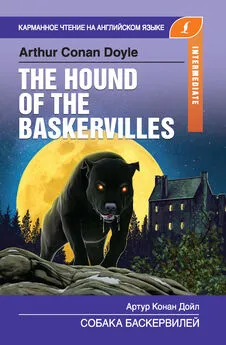Noel Hynd - Hostage in Havana
- Название:Hostage in Havana
- Автор:
- Жанр:
- Издательство:неизвестно
- Год:неизвестен
- ISBN:нет данных
- Рейтинг:
- Избранное:Добавить в избранное
-
Отзывы:
-
Ваша оценка:
Noel Hynd - Hostage in Havana краткое содержание
Hostage in Havana - читать онлайн бесплатно полную версию (весь текст целиком)
Интервал:
Закладка:
“Sometimes that’s enough,” MacPhail said. “But no matter. Maybe we can use this.” He paused, then asked, “You’re on a first-name basis with this guy? Good work.”
“Don’t make more of it than it is, all right?” she answered sharply.
“A trip to Cuba would get her off the New York streets for a time while we wrap up Manuel Perez,” Ramirez offered.
“Far off the streets. No one would ever look in Cuba, I got to say. On that score, it’s brilliant. And the beaches are great, I hear,” MacPhail said. “I know Canadians. And Germans. They go snorkeling and scuba diving every February. It’s cheap.”
“He means drinking and fornicating, most likely,” Ramirez said.
“Gentlemen, let’s bring it back to our immediate problems, okay?” De Salvo said. “Is this a possibility?”
“Yes, it’s a possibility for us if it works for you,” MacPhail said. “And there’s one other iron that we might be able to get in the fire. Want to hear it?”
“Go ahead,” Alex said.
“Okay, look, I hear things,” MacPhail said. “Caribbean desk. They often use freelance people in Cuba. What are you going in for? What purpose specifically?”
“My friend seems to think that a sizeable amount of money is stashed somewhere. He wants to go grab it. At least that’s what he’s telling me, though whether he’s telling me everything is another question,” Alex said. “Some of what he says doesn’t wash. But I feel he’s got credibility on the money angle.”
“Okay,” MacPhail resumed. “What are you supposed to do on this trip?”
“Pose as his wife where necessary and watch his back.”
“So he could help you on an operation in return for you helping him, correct?” MacPhail asked. “And all of this would be off the books? No one would even know … that’s what you’re saying?”
“In essence, yes,” Alex said.
“We could put her on leave,” De Salvo said. “There’d be no official record of where she is.”
MacPhail settled back. “Let me run a name past you,” he said. “Roland Violette.” The name drew blanks from Alex and her boss. “Nothing?” MacPhail asked.
They shook their heads.
“Roland Violette was a CIA employee in the 1950s and 1960s,” MacPhail said. “Turned out he was a Russian agent. He ratted out several CIA operatives in Central America to the Soviets in the ‘70s, then defected to Cuba in the ‘80s. He’s been there since.”
“So?” Alex asked.
“He’s been making noises about coming back to the U.S.,” MacPhail said. “Says he’s got a packet of Cuban intelligence goodies to bring with him. We could use someone to go in, check out the situation, and get him on a covert flight out if he’s worth it. Interested?”
Alex glanced to her boss, then back to MacPhail. “Might be,” she said.
“We’re dealing with him through the Swiss Embassy in Havana,” MacPhail said. “If you can get yourself onto the island, we can get you off … maybe seven to ten days later. Would that allow you enough time to keep your capo happy also?”
“Don’t know. I can ask.”
“Why don’t you tell him, not ask him?”
“That might work too,” she said.
“Why don’t you do that?” MacPhail asked. “We can work within a time frame that will cover the next thirty days. See when your friend wants to go into Cuba, when he wants to get airlifted out.” MacPhail glanced at De Salvo. “What do you think? How crazy is this?”
“It might work,” De Salvo said. He turned to Alex. “I can have someone step up and run your operations for you, we can clean up the Perez mess, your Mafia guy gets his payback from the Federov operation, and you get out of town.”
Alex turned back to her boss.
“If I’m going to do this,” she said, “I’m going to need some quick background. I’m not going to a place like Cuba cold. I need to know what I’m doing.”
“I can arrange it,” De Salvo said.
TWENTY-THREE
Late that afternoon, Alex’s guards took her to a townhouse maintained by the FBI on East 38 thStreet between Lexington and Third. The building had six apartments. Two NYPD guards sat in the lobby, which was concealed from street view behind two locked doors.
Alex was given a three-room apartment on the third-floor rear. It was pleasantly appointed, clean, and safe. The Feds also sent a housekeeping team over to her home on West 61 stStreet. The housekeepers retrieved clothing and everything else she requested and moved her in by that evening at 9:00 p.m. She settled in, knowing that she would be moving again within a few days, if the Cuban mission received a green light.
De Salvo came by that evening. He had files on flash drives for her and a fresh laptop. They had a working dinner over Thai takeout.
“So,” Alex asked at length, “what can you tell me?”
“Almost everything you need to know is on the drives,” he said. “Hope you don’t mind some heavy reading.”
“I don’t,” she said, “but I want to know what you know. You’ve been on Central America and the Caribbean your whole career. What stands out?”
“Well, here’s a tidbit you won’t hear from anyone else,” De Salvo said. “As Americans fled Castro’s takeover in 1959, people with connections to the U.S. Embassy dropped off a lot of stuff for safekeeping. Valuables like jewels, furs, stock certificates, antiques, even boxes of money. It’s still there to this day. The ‘U.S. Interests Section,’ located in the old U.S. Embassy, is technically part of the Swiss Embassy. But it’s fully staffed by American personnel and is an embassy in all but name. That this is a part of the Swiss Embassy is just a mutually convenient legalism, both for us and the Cubans. Everything is in a room that’s been kept locked ever since 1960. It’s so sensitive that the stuff has never been inventoried. No one knows what kind of identification accompanies the items. I doubt if there’s anyone alive who was physically on the premises to take the items in. Couple that with the fact that most of the people who dropped that stuff off are dead. The ultimate fate of such property? Who knows? Stuff like that is going to make your buried money look like an easy case.”
“All we have to do is dig and skedaddle,” she said, making a joke of it.
But De Salvo remained serious. “Look, Alex,” he said, “I’ll ramble a bit and tell you this: the United States is going to have to bite a few bullets and prepare for a reasonable transition in Cuba. We don’t have a lot of good intelligence coming from the island to guide us. That’s why someone like Violette could be important; that’s why I’m guessing the people at Langley want you to ride shotgun with Guarneri. Fresh eyes on the island. You remember how Russia and Eastern Europe crashed into ‘gangsterism’ after the fall of Communism in the 1980s? Well, imagine the Mafia returning to Cuba and doing business with the narcogobiernos of Mexico and Colombia. The U.S. would quickly find itself with the Latin American drug wars ninety miles off the coast of Florida. That would be a whole lot less convenient than a bearded old Bolshevik in an army uniform trying to hang onto the last gasp of his Commie dream.”
“The American mob pretty much ran the island before Castro, right?”
“Absolutely,” De Salvo said. “That’s why Fidel had popular support. The brutal dictatorship under Batista was completely on the payroll of the American Mafia. Meyer Lansky was the key guy. The mob wanted to establish the Cuban government as a fully owned subsidiary of their interests. They had plans to make Havana the Monte Carlo of North America. Anything you wanted that was illegal in the U.S., you could get legally in Havana. Drugs. Women. Sex shows. Gambling.”
“And the mob lost all its interests when Castro took over in 1959?”
“Absolutely,” De Salvo said. “The big shots got out of Cuba fast. A lot of their middle-to lower-level people ended up in jail or in front of firing squads.”
“Which explains why the U.S. government enlisted the mob to help kill Castro, right?”
“Absolutely right again. I was a young kid working at the Justice Department when a lot of this stuff came to light in the ‘70s,” De Salvo said. “Fresh out of law school and two years working as an assistant U.S. Attorney in Chicago. The attempts on Castro’s life from the United States go way back to Eisenhower. Ike set up ‘Operation Mongoose.’ The CIA had several hundred people working on this project, including anti-Castro people who were left-behinds in Cuba. The CIA trained a paramilitary guerilla force inside Cuba to remove Castro. But Fidel was enormously popular on the island, at least back then. So the idea was scrapped by Ike, and the job was left to Kennedy. That was the first time the Mafia was hired, during the Kennedy years. The mob wanted its businesses back and JFK had friends in the mob. So it all made sense. If Castro were killed by the Mafia, the CIA could wash their hands of the job. So you had this back-alley spectacle of the FBI working with the Mafia, offering a certain amount of immunity for a bunch of hoods in the U.S. in exchange for the death of Castro.”
“Much like the way my acquaintance Yuri Federov got his tax breaks,” said Alex.
“And much like the way Lucky Luciano got parole after World War II – for helping the United States Navy with the invasion of Sicily,” De Salvo said. “When the CIA was planning the Bay of Pigs invasion, the agency asked their contacts in Cuba to assess the chances that an invasion would set off a popular uprising. The CIA also asked the mob to identify the roads that Castro might use to deploy troops and tanks in meeting attacking forces. The wiseguys asked their old contacts who were still in Cuba to set up a network of spies. Idiotic idea. The CIA at its worst. They were dealing with a bunch of crooks. The contacts told the CIA exactly what it wanted to hear. They claimed that they’d found that an insurrection was in the works, but of course, it never came off. Still hasn’t. And you didn’t need spies to tell you about the roads near where the Bay of Pigs invasion was planned. There was only one road to the beach, and any local sugar cane farmer could have told you where that was. We were flying spy planes at low altitude over the island all the time, and the single road was visible from the air. It was the road the Cuban army used to beat back the invasion.”
Alex shook her head.
“If I remember correctly,” De Salvo said, “the whole concept of ‘Operation Mongoose’ went completely haywire. JFK put his brother Robert, the Attorney General, in charge of getting rid of Castro. They hatched out a new program called ‘Operation Freedom.’ That’s when it went from dumb to dumber to dumbest. During a United Nations meeting that Castro attended, some CIA dupe slipped a poison cigar into Fidel’s cigar case. The CIA thought it would be a certain way to knock him off, but someone inspected the cigar case and figured it out before Fidel lit up. The same CIA agents had originally planned to give Castro a cigar with a mini-bomb in it. That never went to fruition either.”
De Salvo was shaking his head and laughing now. So was Alex, laughing from the absurdity of it all.
“Another plan was to slip Castro a cigar spiked with LSD,” De Salvo said. “The plan was that after he smoked it, he would be an obvious head case and everybody would think he was nuts. Castro was also fond of scuba diving. So the CIA sprayed a scuba suit with tuberculosis bacteria. They gave the suit to an American lawyer who was going to Cuba to negotiate for the release of prisoners from the Bay of Pigs. At the last minute, they chickened out, saying that even if it did work it would be too obvious and would cause a national embarrassment to the U.S. Another half-wit idea was to set a trap at one of his favorite diving spots. The trap would be an exploding conch shell. This one wasn’t carried out because planners thought it would be far too difficult to prepare.”
Читать дальшеИнтервал:
Закладка:










